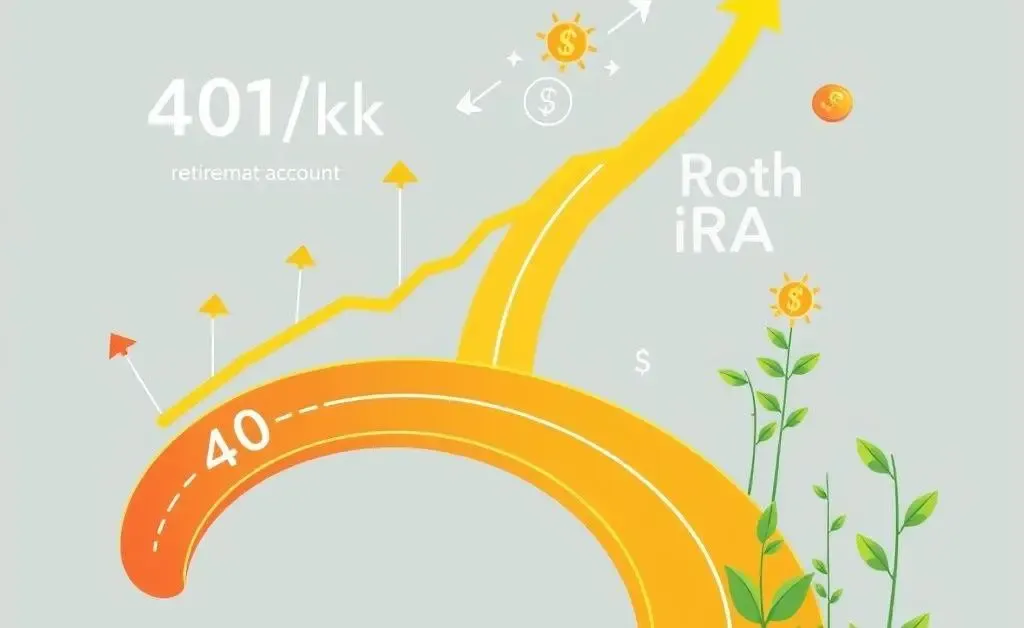Understanding 401(k) to Roth IRA Rollovers: A Simple Guide
Discover the essentials of 401(k) to Roth IRA rollovers and make informed decisions.

Is Rollover the Right Move for You?
Are you considering a 401(k) to Roth IRA rollover but feeling a bit unsure about where to start? You're not alone. It’s common to feel overwhelmed when thinking about managing your retirement funds, especially if you're juggling monthly expenses and financial goals. Fortunately, with a little clarity, you can make a decision that aligns with your future plans.

The Basics of 401(k) to Roth IRA Rollovers
Before taking the leap, it’s crucial to understand the process. A rollover involves moving funds from your 401(k) plan, typically a pre-tax account, into a Roth IRA, which is funded with after-tax dollars. This move can offer some exciting advantages, such as tax-free growth potential on your investments.
Consider Your Tax Bracket
One key factor to consider is your current tax bracket. Rolling over funds from a 401(k) to a Roth IRA means you'll have to pay taxes on the amount you convert. For instance, if you're currently in a lower tax bracket, you might pay less in taxes now than in retirement, making a rollover potentially beneficial.
Rollover Process: What to Expect
Here’s a simple guideline to follow when embarking on this rollover journey:
- Check if your 401(k) plan allows rollovers to a Roth IRA.
- Consult with a tax advisor to understand the tax implications.
- Contact your 401(k) provider to initiate the rollover and set up a Roth IRA if you don’t already have one.
- Ensure a direct or indirect rollover to avoid unnecessary penalties.
Weighing the Pros and Cons
Rolling over to a Roth IRA isn’t a one-size-fits-all solution. Here’s a relatable anecdote: Imagine Sarah, a diligent worker in her early 30s who wanted to build a strong retirement fund. Sarah decided to roll over her 401(k) to a Roth IRA for the tax-free growth advantage, unaware of the current year’s tax implication. Slightly shocked by the tax bill, she wished she had consulted a financial advisor first. It worked out later, but it was quite the learning experience!

Making Informed Decisions
Every financial decision should reflect your personal circumstances, risk tolerance, and long-term goals. If managing your finances feels like navigating a maze, know that that's perfectly normal. Whether you decide to roll over or stick with a 401(k), the key is ensuring your choices bring peace of mind and security in retirement.

What’s Your Next Step?
Now that you're equipped with some basic knowledge, what's your next move? Will you consult a financial advisor, delve deeper into research, or perhaps talk to someone who’s done a rollover? Remember, your financial journey is uniquely yours.




